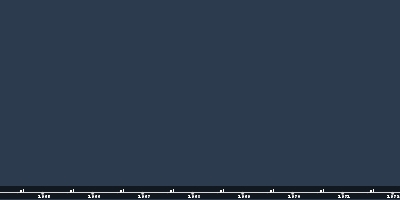New Left and antiwar movement challenge U.S. policy in Vietnam and broadly opposed Cold War anticommunist consensus (1 gen 1960 anni – 1 gen 1980 anni)
Descrizione:
1968 Democratic National Covnention:A convention held in Chicago during which numerous antiwar demonstrators outside the convention hall were teargassed and clubbed by police. Inside the convention hall, the delegates were bitterly divided over Vietnam.
Chiacano Moratorium Committee: Group founded by activist Latinos to protest the Vietnam War.
By 1968, urban unrest, campus protests, and a nose-thumbing counterculture had escalated into a general youth rebellion that seemed poised to tear America apart. This “watershed year for a generation,” SDS founder Tom Hayden wrote, “started with legendary events, then raised hopes, only to end by immersing innocence in tragedy.” The year 1968 was not simply eventful – the events themselves were explosive, with ripple effects across society. Violent clashes both in Vietnam and at home, a society and culture in turmoil, and shocking political assassinations combined to produce a palpable sense of crisis.
In 1965, President Johnson had gambled on a quick victory in Vietnam. If American forces could speedily stabilize South Vietnam and get out, there would be no political cost to the escalation. But there was no quick victory. North Vietnamese and Vietcong forces fought on, the South Vietnamese government repeatedly collapsed, and American casualties mounted. By early 1968, the death rate of U.S. troops had reached several hundred a week. Johnson and his generals insisted, in a phrase widely quoted by the press, that there was “light at the end of the tunnel.” Facts on the ground showed otherwise.
Before their deaths, Martin Luther King Jr. and Robert Kennedy had spoken eloquently against the Vietnam War. To antiwar activists, however, bold speeches and marches had not produced results. “We are no longer interested in merely protesting the war,” declared one. “We are out to stop it.” They sought nothing short of immediate American withdrawal. Anger at Johnson and the Democratic establishment Party — fueled by the violent climate of 1968 — radicalized the movement.
In August, at the 1968 Democratic National Convention in Chicago, the political divisions generated by Vietnam finally consumed the party. Thousands of protesters descended on the city. The most visible group, led by Jerry Rubin and Abbie Hoffman, claimed to represent the Youth International Party (whose members were known as “Yippies”). In a bitter parody of the events inside the convention hall, the Yippies nominated a live pig, Pigasus, for president. These stunts were geared to draw maximum media attention. But a far larger and more serious group of activists had come to Chicago to demonstrate against the war as well — in what many came to call the Siege of Chicago.
The city’s four-term Democratic mayor Richard J. Daley ordered the police to break up the demonstrations. Several nights of skirmishes between protesters and police ensued, peaking on the final night of the convention. In what an official report later described as a “police riot,” officers attacked protesters with teargas and clubs, turning ordinary city streets into warlike scenes of violence and chaos. As the nominating speeches proceeded, television networks broadcast scenes of the riot, cementing a public perception of the Democrats as the party of disorder. “They are going to be spending the next four years picking up the pieces,” one Republican said gleefully. Inside the hall, the party dispiritedly nominated Hubert H. Humphrey, Johnson’s vice president, running on a lukewarm platform that committed to continuing the fight in Vietnam while seeking a diplomatic solution.
With liberalism on the defensive and Nixon’s “silent majority” movement on the rise, the antiwar movement and the wider youth rebellion were both turning fierce. So, too, were the Black Power and Chicano movements, which had broken with the liberal “rights” politics of an older generation of leaders. These new activists voiced fury at the poverty and white racism that sat beyond the reach of civil rights laws; they also saw Vietnam as an unjust war against other people of color. The Black Panther Party and the National Black Antiwar Antidraft League also sharply condemned the war. “Black Americans are considered to be the world’s biggest fools,” Eldridge Cleaver of the Black Panther Party wrote in his typically acerbic style, “to go to another country to fight for something they don’t have for themselves.” Cleaver and other radical black leaders took inspiration from Muhammad Ali, the outspoken world heavyweight boxing champion, who had refused his army induction in 1967. Sentenced to prison, Ali was eventually acquitted on appeal. But his action cost him his title, and for years he was not allowed to box professionally in the United States. In the same spirit, the Chicano Moratorium Committee organized demonstrations against the war. Chanting “Viva la Raza, Afuera Vietnam” (“Long live the Chicano people, Get out of Vietnam”), 20,000 Mexican Americans marched in Los Angeles in August 1970. At another Los Angeles rally in 1971, Cesar Chavez said: “For the poor it is a terrible irony that they should rise out of their misery to do battle against other poor people.” He and other Mexican American activists charged that the draft was biased against those who had little.
Aggiunto al nastro di tempo:
Data:
1 gen 1960 anni
1 gen 1980 anni
~ 20 years
